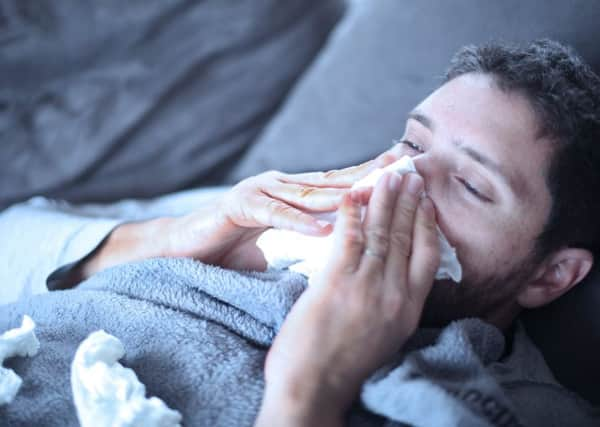The nation's most popular medical myths revealed


The report also found that people believed that a “hair of the dog” would help a hangover, while the site also said that urinating on a jellyfish sting would have little benefit.
The most commonly tried home remedy was gargling with salt water to relieve a sore throat, which had been attempted by 56 per cent of people and is accepted by health professionals to have some benefits.
Advertisement
Hide AdAdvertisement
Hide AdHowever, the next most popular self-medication was “sweating out a cold”, which medical experts at PharmacyOnline.co.uk, which carried out the research, said would not work, adding that it might make you more comfortable to stay warm, but would not speed the healing process.
Arguably the strangest home remedy – that of sleeping in a pair of socks filled with onions to stave off a cold, which has been done by 8 per cent of people, half of whom believe it is effective – has been dismissed by the pharmacy website as having “no evidence” that is has any benefits.
Some 7 per cent of men have tried rubbing tumeric powder into their head to prevent baldness, which medical experts said would not work and could in fact cause scalp irritation.
Home remedies which pharmacists said could work include putting olive oil in your ear to relieve earache, and rubbing lemon juice on to an insect bite – a method favoured by 14 per cent of people – to relieve stinging and help clean the bite.
Hitesh Dodhia, superintendent pharmacist at PharmacyOutlet.co.uk, said: “While some of the common health remedies uncovered in today’s research have no scientific evidence to prove they work, many of them are relatively harmless. What’s more, it’s quite normal that the placebo effect associated with these methods can make people feel as though they’re improving their health.
“However, there are more serious consequences of relying on fictional cures. Firstly, using unproven household remedies should never supersede advice given by a medical professional, nor should using these methods deter people from seeking the help of a pharmacist, GP or doctor.
“Moreover, some of these health remedies can actually do more harm than good – ‘hair of the dog’ may ease the struggles of hangover in the short term but will worsen the effects later on.
“Additionally, it’s important to be very careful when putting olive oil in your ear or washing cuts in seawater; both remedies carry risk of infection, which is why I would advise against such methods.”